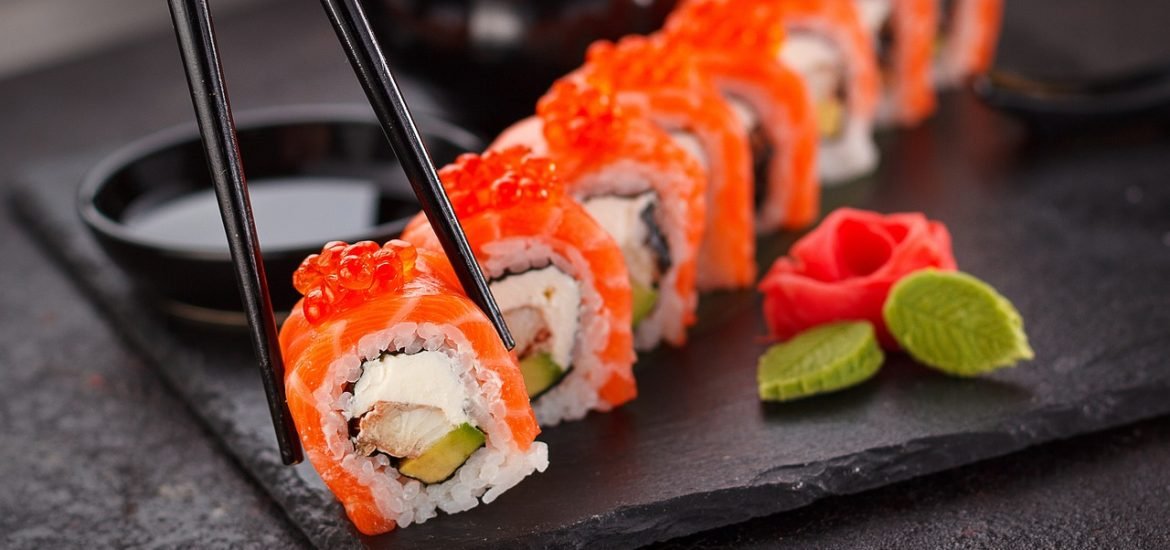
Drug-resistant bacteria may be present in raw and lightly processed seafood items, such as sushi, according to a study published in a scientific journal called Frontiers in Microbiology.
The popularity of sushi — including sashimi and other raw fish dishes — has increased significantly in the past few years and is consumed everywhere around the world. In most cases, it’s perfectly safe to eat this type of food, but there are some health hazards for individuals and society at large. “Bacteria in sushi, sashimi, and cold-smoked fish products can pose a risk to people who eat such foods frequently, especially people with weak immune systems, children, and the elderly,” said Hyejeong Lee from the Norwegian University of Science and Technology.
In this work, Dr Lee investigated the presence of Aeromonas bacteria in sushi and other seafood products that are not heavily processed. Without any heat treatment, the risk of bacteria increases sharply. “The goal was to gain more knowledge about Aeromonas in this type of seafood – both the bacteria’s role in the deterioration of the product and in causing disease. Furthermore, we wanted to see if raw seafood can spread antibiotic-resistant bacteria,” said Dr. Lee. Listeria monocytogenes is probably the most common pathogenic bacteria found in raw or mildly processed seafood, but the incidence of Aeromonas has worried scientists for some time.
After analysing multiple products readily available in the Norwegian market, Dr. Lee found that the mild processing of sushi, sashimi, and cold-smoked fish does not prevent bacterial growth. “The results show that the mild processing these fish products receive does not guarantee that the growth of Aeromonas bacteria will be inhibited,” said Dr Lee. “The majority of these Aeromonas variants are possibly pathogenic, and there are often several different risk factors associated with them.”
Dr Lee explains that, although there is a risk, it is small, especially for healthy people. The real problem is that Aeromonas bacteria in the wild can exchange genetic material with other bacteria. This can become a serious problem if this genetic material originates from bacteria that are resistant to antibiotics. “Some strains of Aeromonas can also spread antibiotic resistance from one type of bacteria to another. Eating seafood infected by resistant bacteria is a likely way these bacteria can spread from marine animals and environments to humans,” Dr Lee concludes. Resistant bacteria don’t cause more disease than other bacteria but are more challenging to treat, as not many antibiotics work against them.
“To combat the spread of antibiotic-resistant bacteria, it is important that we adopt a broad approach that looks at animal and human health, food production, and the environment together in order to achieve better public health,” said Anita Nordeng Jakobsen, associate professor at NTNU’s Department of Biotechnology and Food Science.
Strict regulations are probably the most important way to control antibiotic-resistant bacteria. Methods to prevent bacterial contamination include systematically monitoring and taking samples in production environments, implementing measures when multidrug-resistant bacteria are detected in groups of animals, vaccination, as well as education and awareness-raising work in food production around the world.
Lee H, Storesund J, Lunestad B, Hoel S, Lerfall J, Jakobsen A (2023) Whole genome sequence analysis of Aeromonas spp. isolated from ready-to-eat seafood: antimicrobial resistance and virulence factors. Frontiers in Microbiology. https://doi.org/10.3389/fmicb.2023.1175304